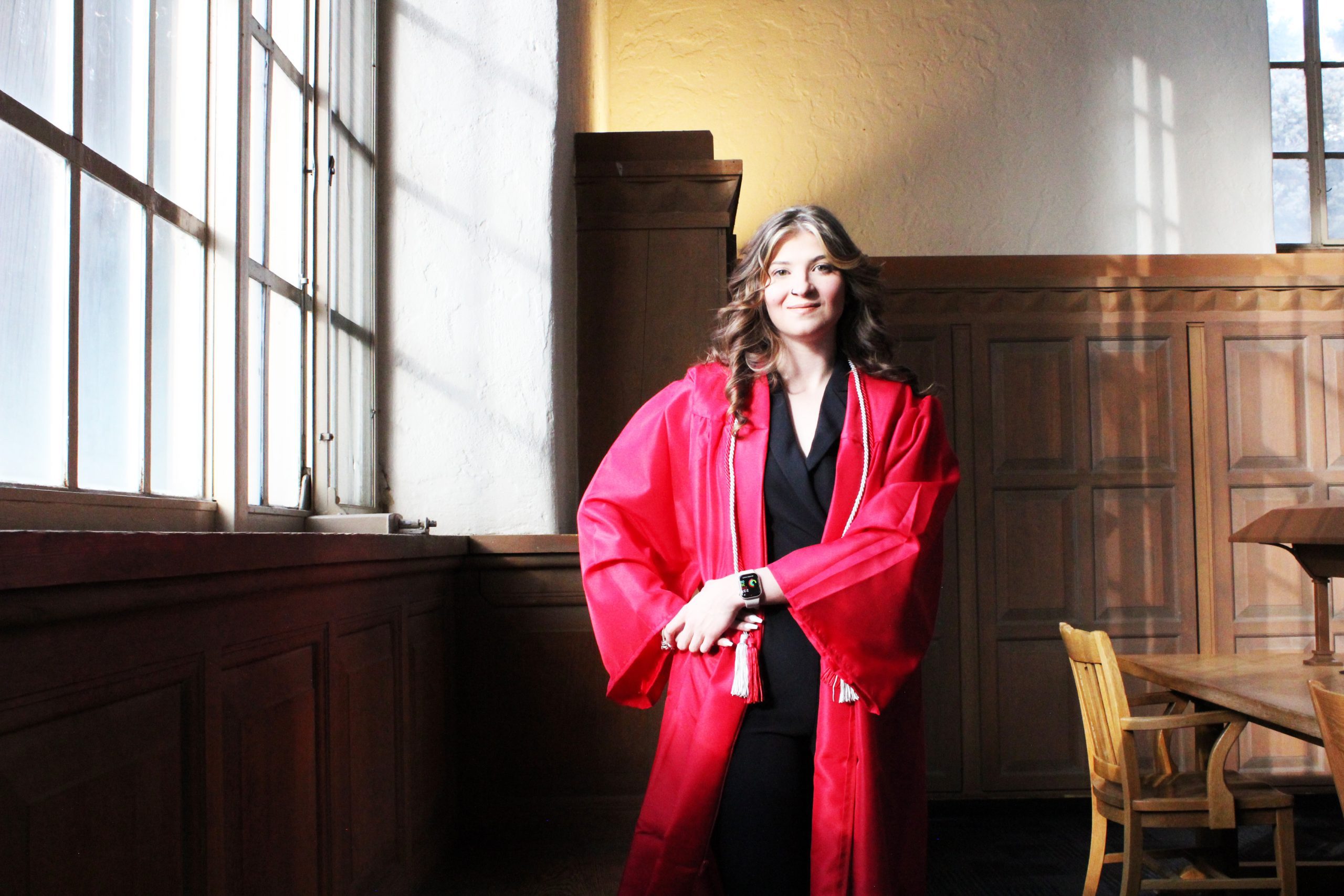
Just after her freshman year in 2020, University of New Mexico student Kiana Frederick decided to take a course with associate professor Sarita Cargas in the Honors College. Cargas was looking for students who wanted to explore food and housing security of college students in New Mexico. Frederick found herself fascinated by the subject and even as she prepares for graduation this month with a bachelor’s degree in Political Science, she plans to continue to work on the issue.
“I would absolutely love to stay tied with the Basic Needs Project and continue to work with them over the years, if possible,” Frederick said.
The Basic Needs Project is an interdisciplinary collaboration of UNM faculty, students, and staff seeking to improve the food and housing security of college students through a combination of data collection, research, and the development of evidence-based solutions. The program examines the prevalence, patterns, and experiences of food and housing insecurity among UNM students.
This work has shown that minority, international, and LGBTQ students are more likely to experience food and housing insecurity, and that those students who experience basic needs insecurity are more likely to have poorer educational outcomes and poorer physical and mental health. This means that food and housing insecurities are important barrier to equitable access to education.
“I don’t think food insecurity is something you really think about as an undergraduate,” Frederick observed. “Even some of those facing food insecurity don’t even know they are food insecure. So, learning about students being food insecure was something that both surprised me and saddened me, but also sparked a desire to help these students get a voice.”
Among the research projects Frederick did as an undergraduate was looking at whether academically gifted students in the UNM Honors College in an R1 University are faced with the same incident rates of food insecurity compared to the rest of the UNM undergraduate population. She presented her research with a poster and in a research story competition at the Undergraduate Research Opportunity Conference last spring.
“Through this project, we learned that honors students are just as likely to be food insecure as the rest of the general university population. We also found out interesting statistics on the honor’s student population, such as over 90 percent of honors students work in some capacity,” she explained, adding, “We found that honors students may not be as privileged as perceived. We had an incredible response rate on the research, and, personally, I got to go to Western Regional Honors Conference and National Collegiate Honors Council to share this research. I am also the project manager for the statewide study, which is surveying higher education institutions in New Mexico on food and housing insecurity.”
Frederick cited Cargas as the professor who has been the most influential person to her over the last few years.
“Her voice as an advocate, and not being afraid to stand up for people and make their stories heard is incredibly influential. Both my parents as well have been incredibly supportive in my academic journey, so I am incredibly thankful for them.”
During her time at UNM Frederick was able to find topics and projects she became passionate about.
“Sure, going to school taught me the importance of time management, communication, and all that. However, it also taught me the importance of passion and interest and how meaningful they are in your career and life. It also taught me you cannot plan every moment of the future, despite how hard you try to. The last three years have demonstrated to me that my plans are to continue to find the things that I am passionate about.”
Following graduation, Frederick plans to attend Anderson School of Management in the spring to get a master’s degree in Project Management. She also will continue her work with the Basic Needs Project.
“I know this is something we can address and change together. No student should have to make decisions that may jeopardize their academic success to ensure they have their next meal.”
